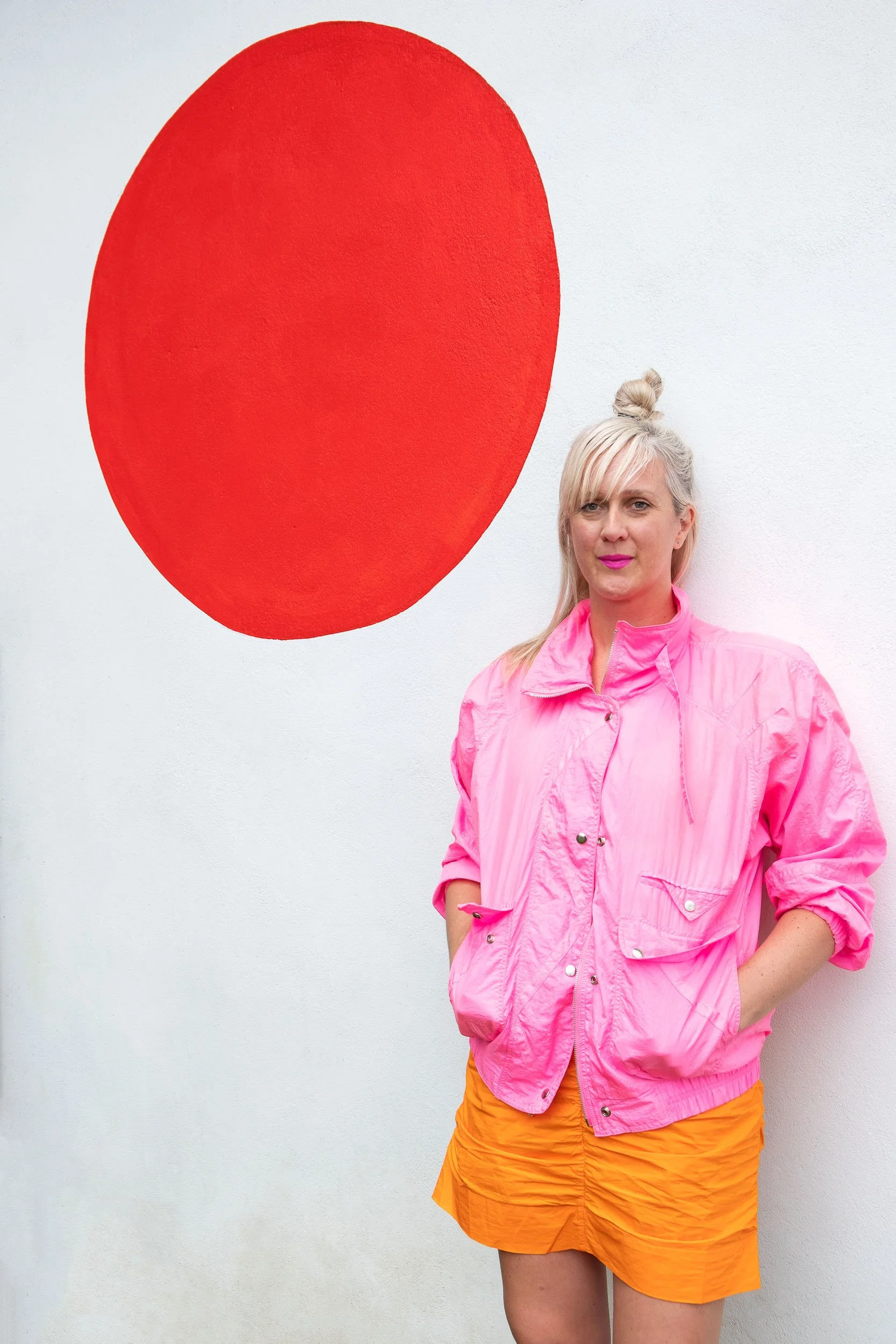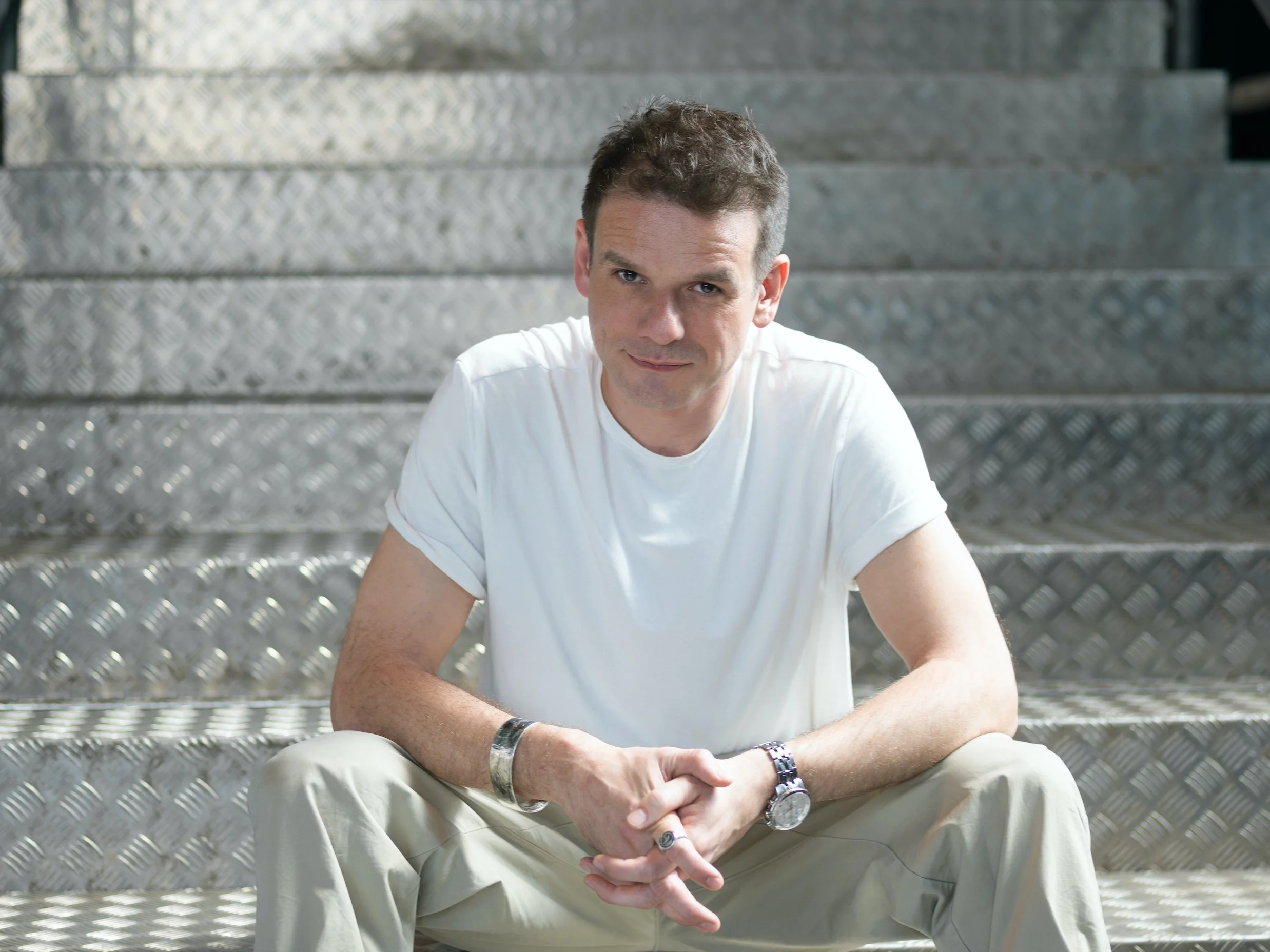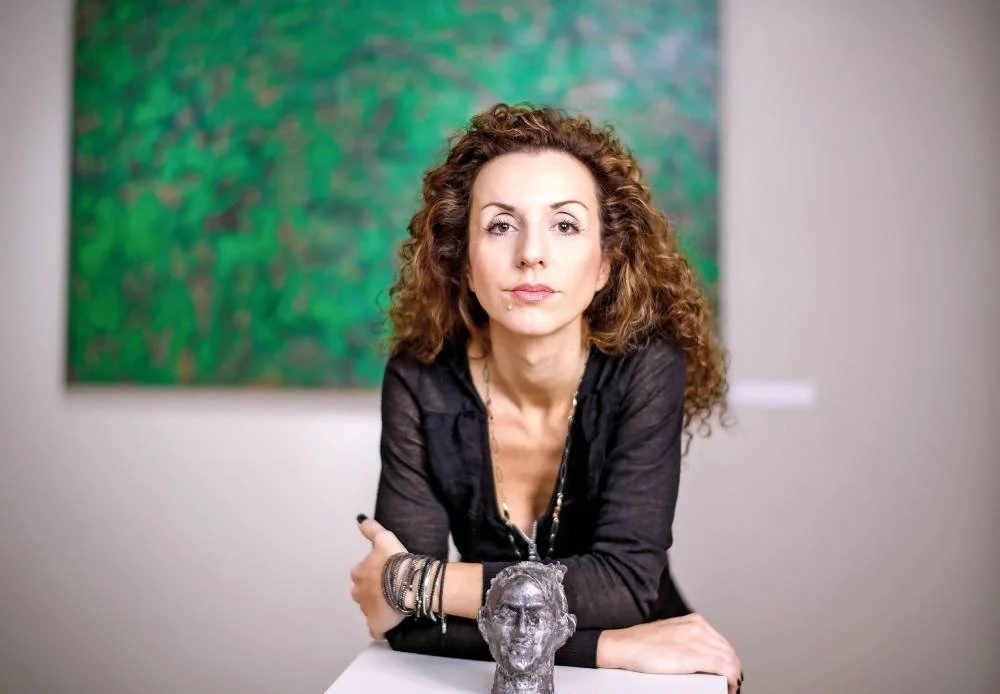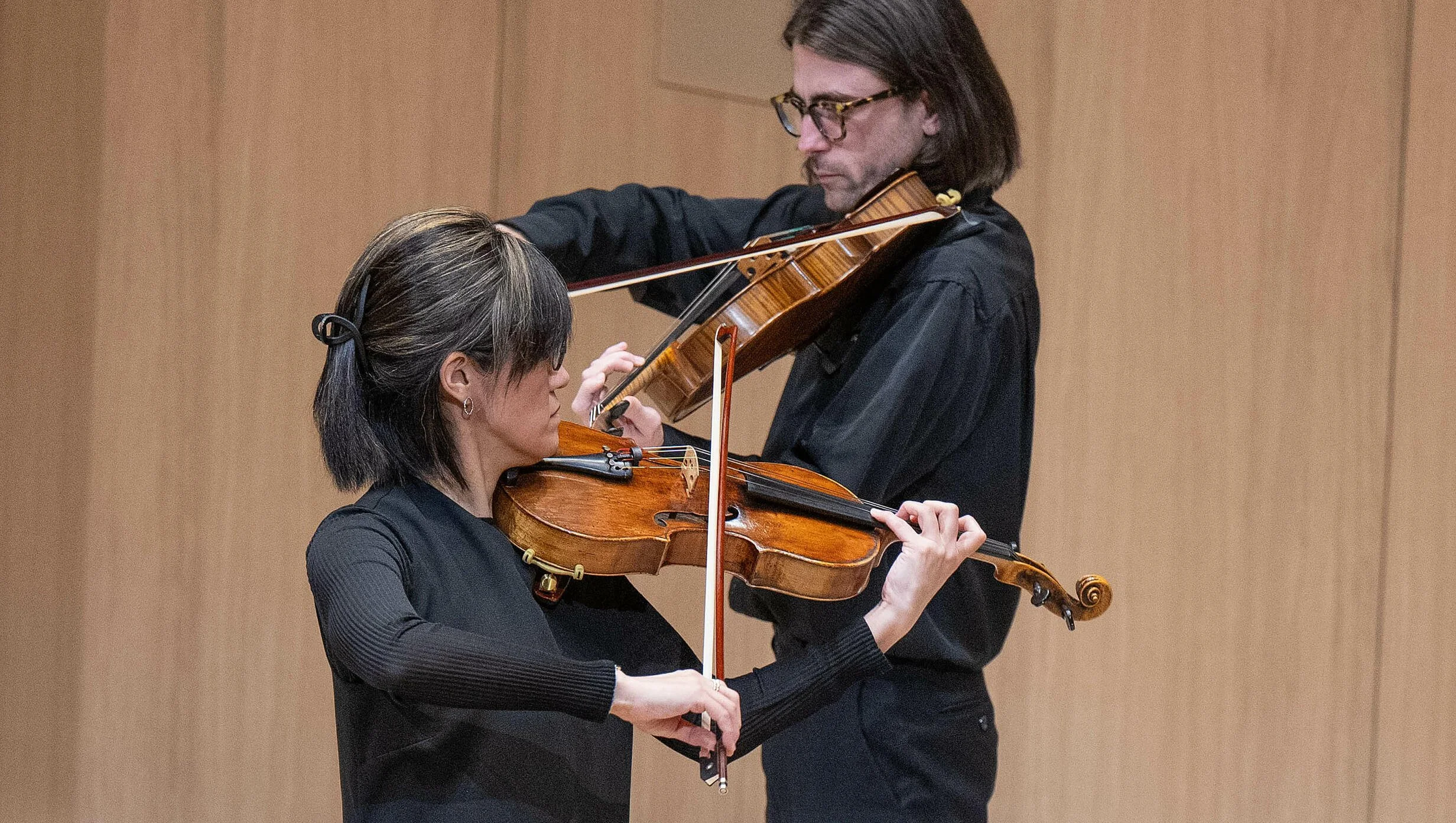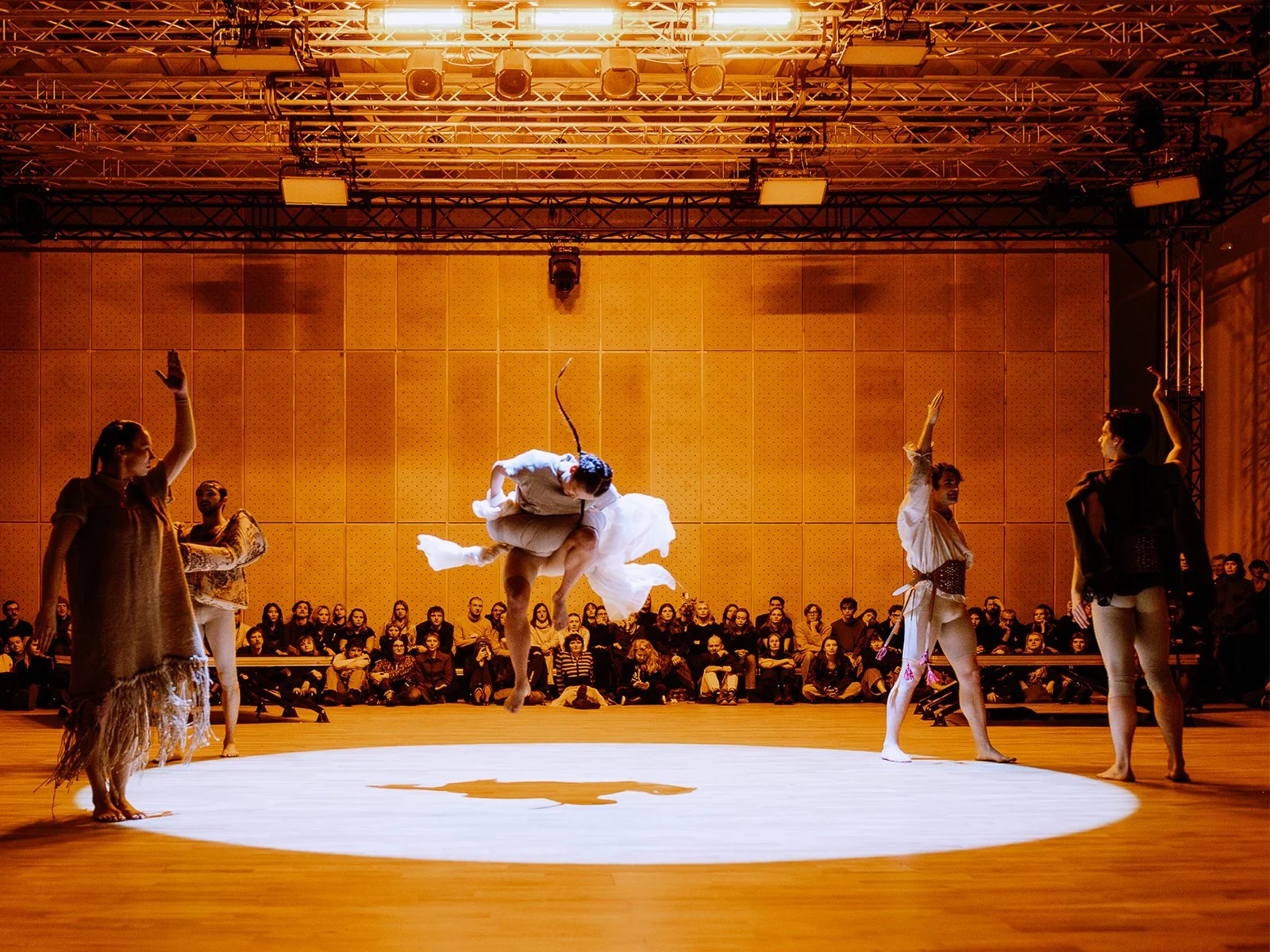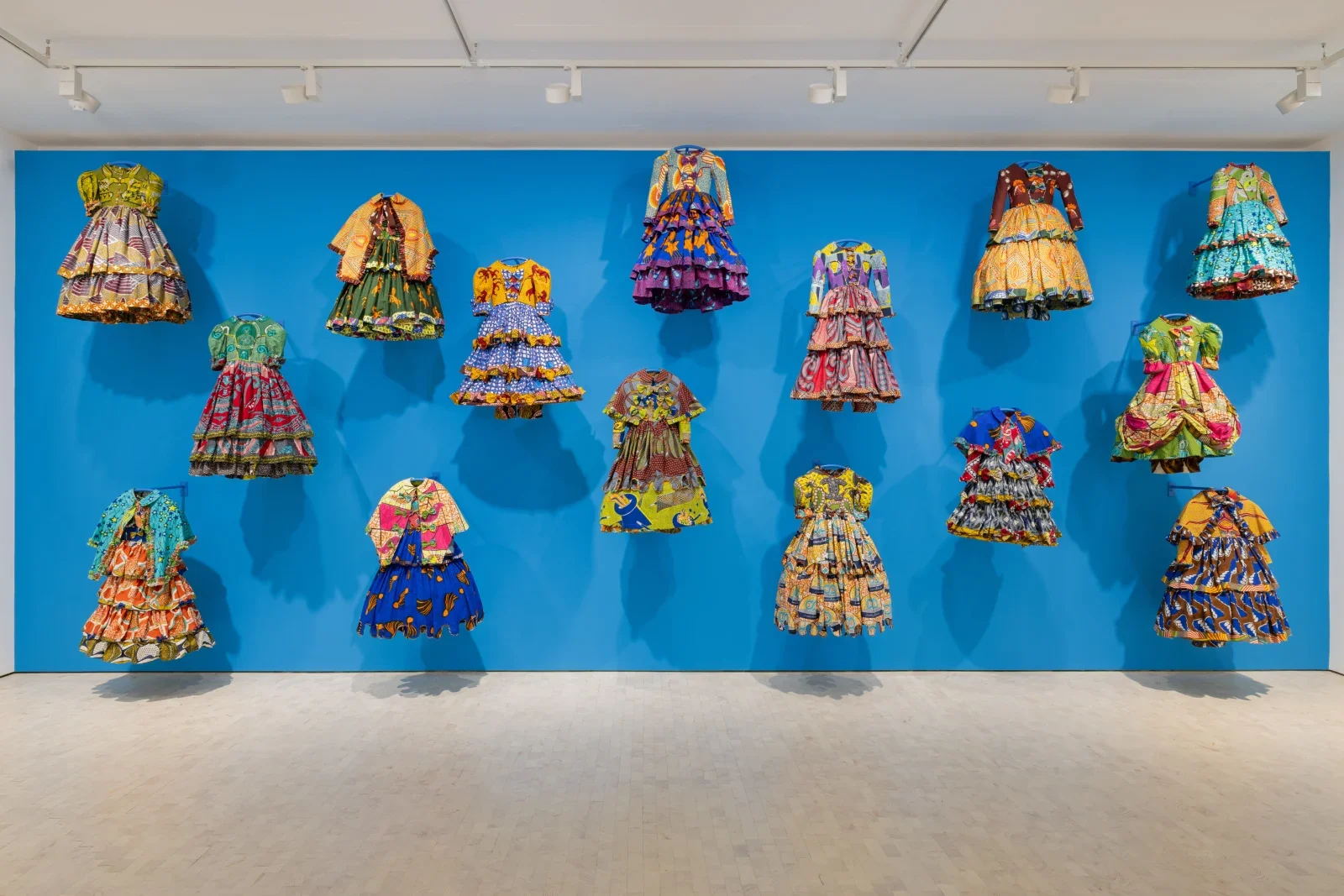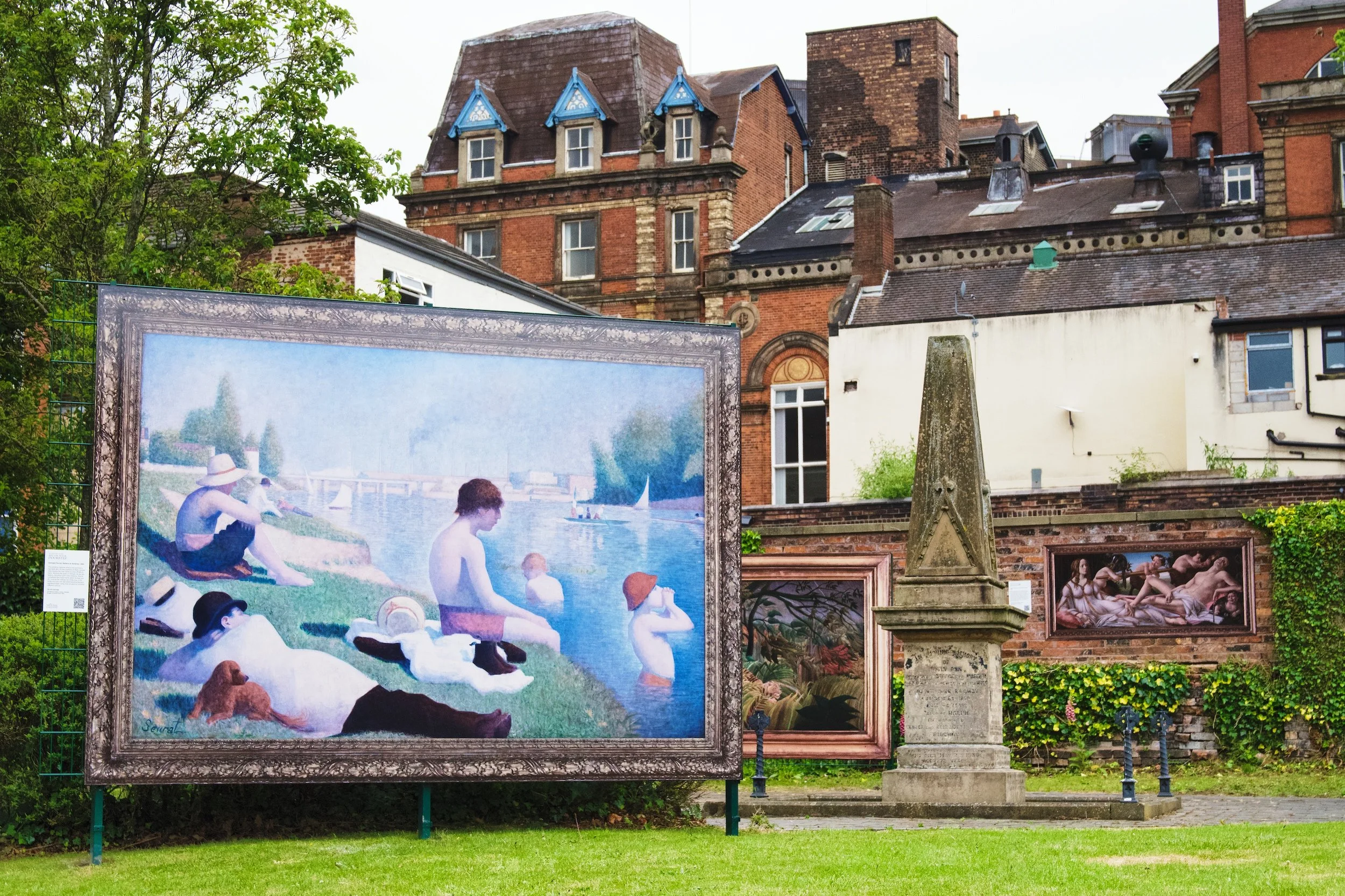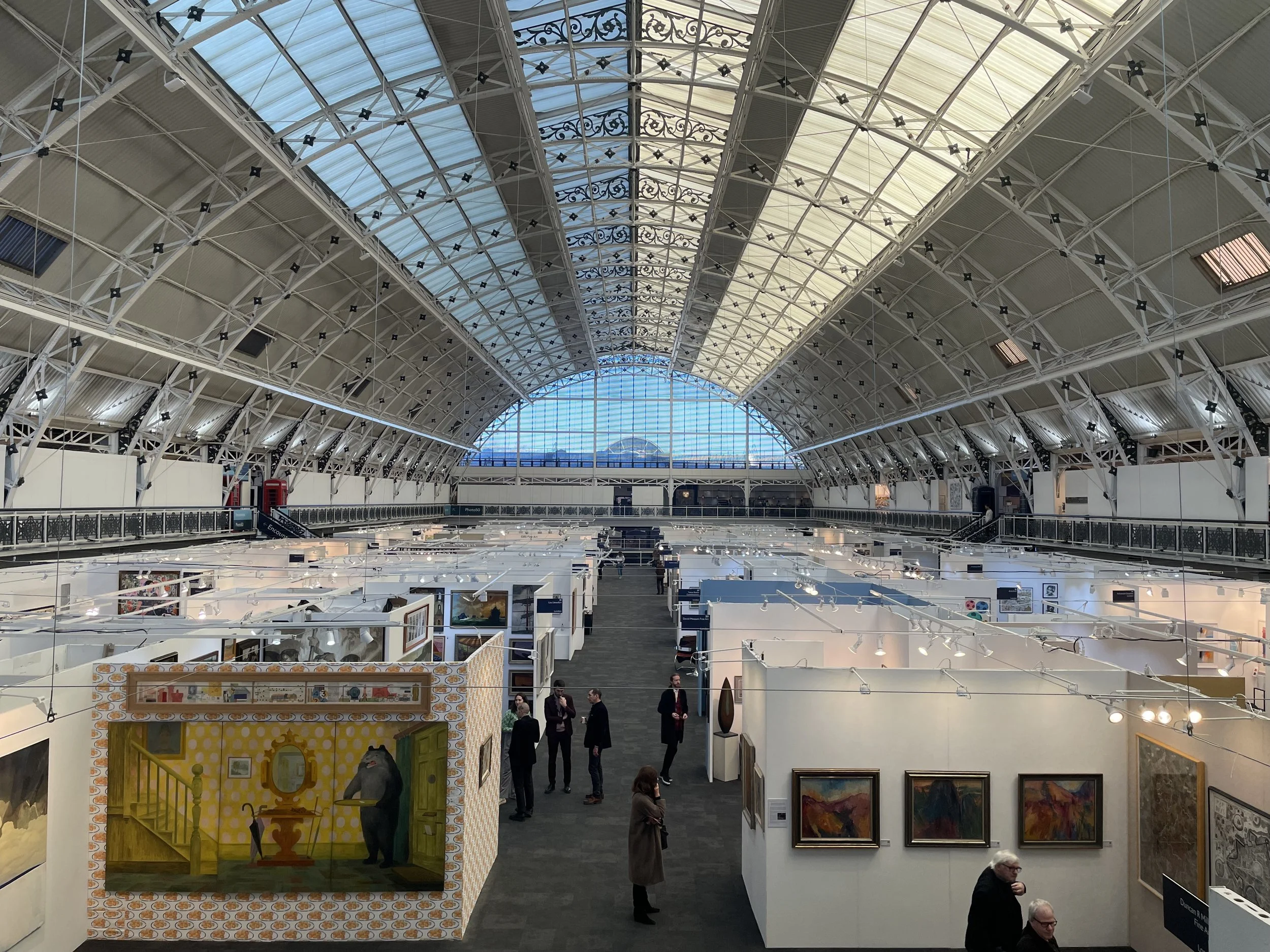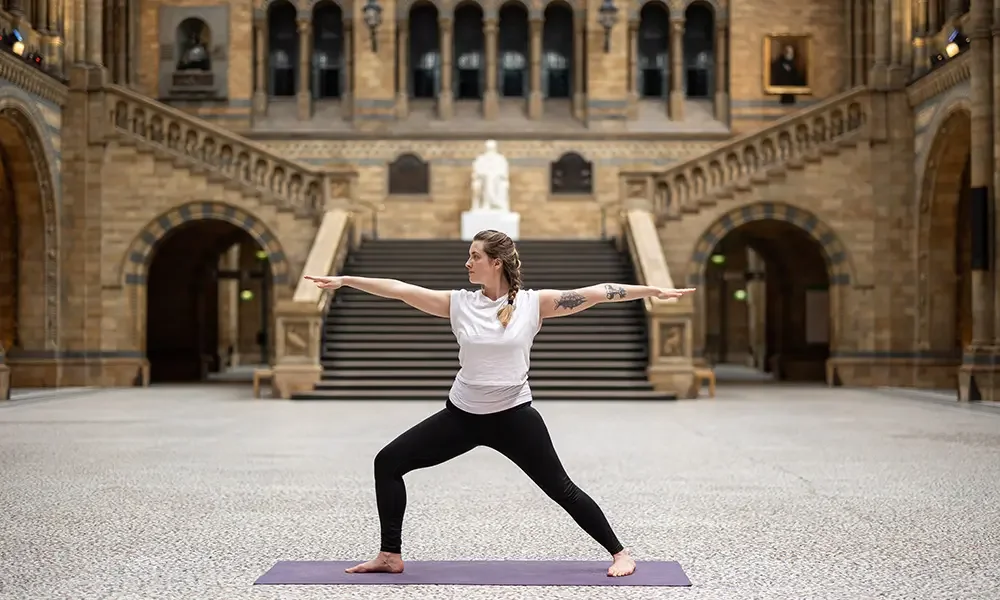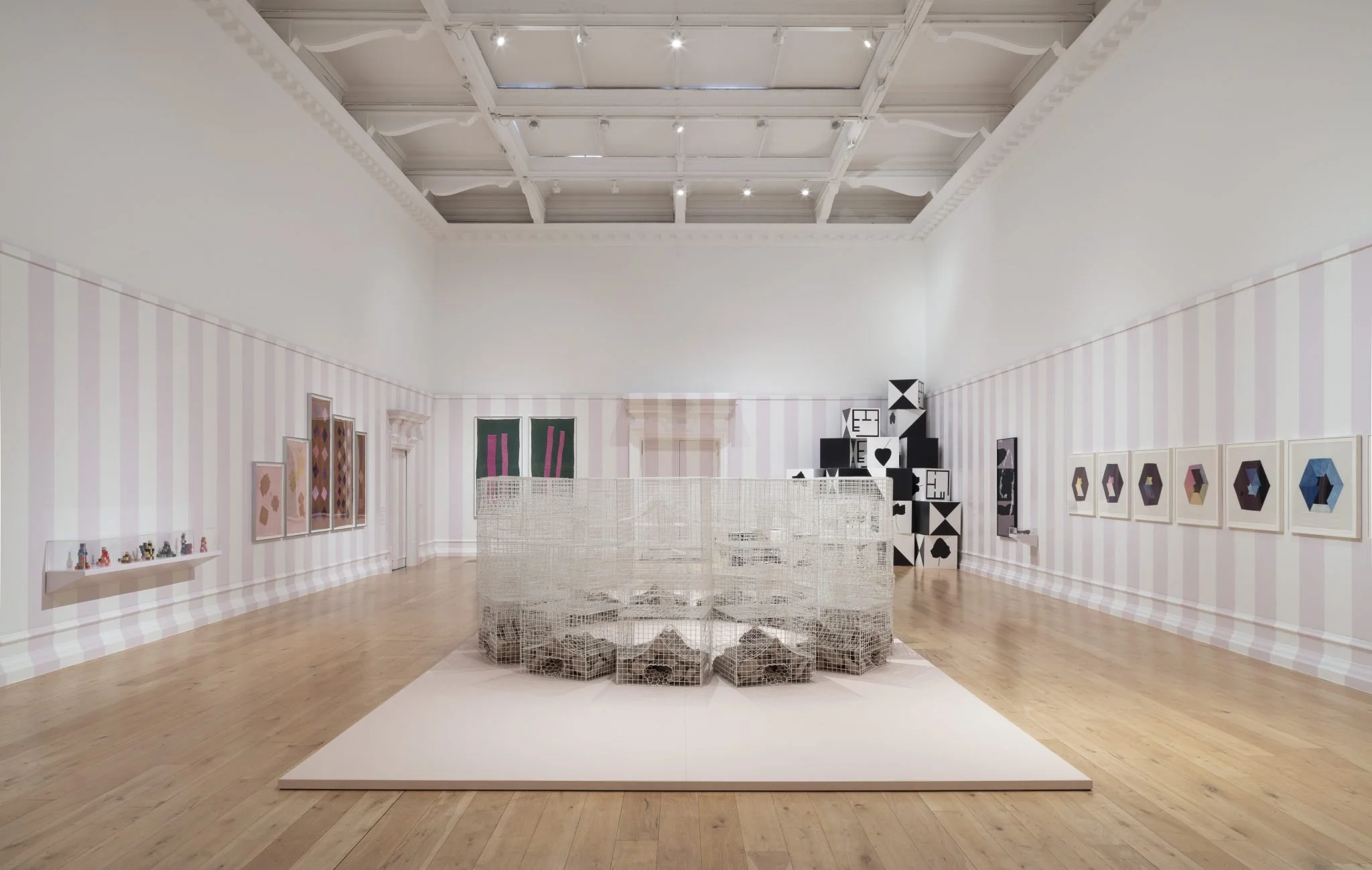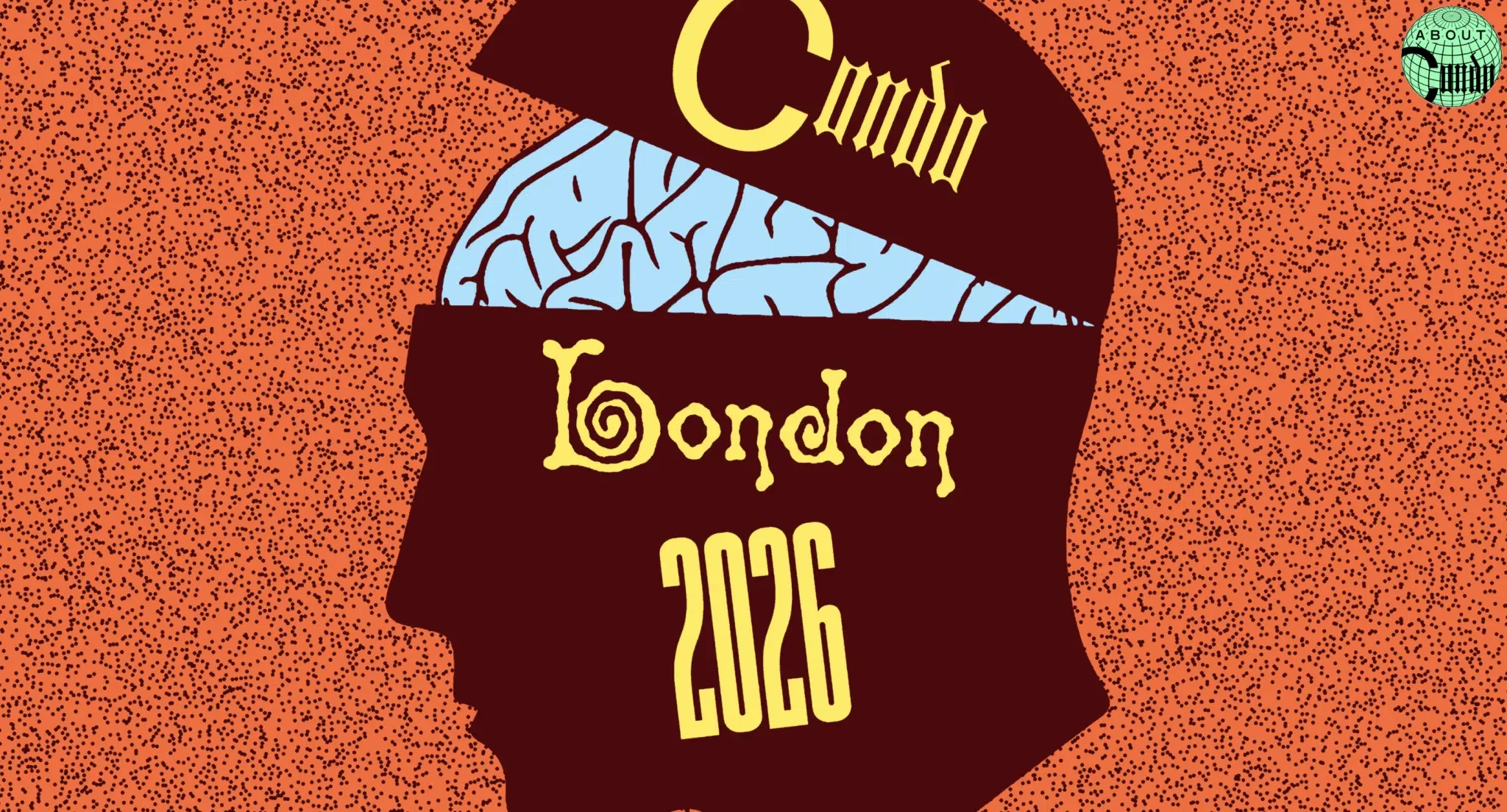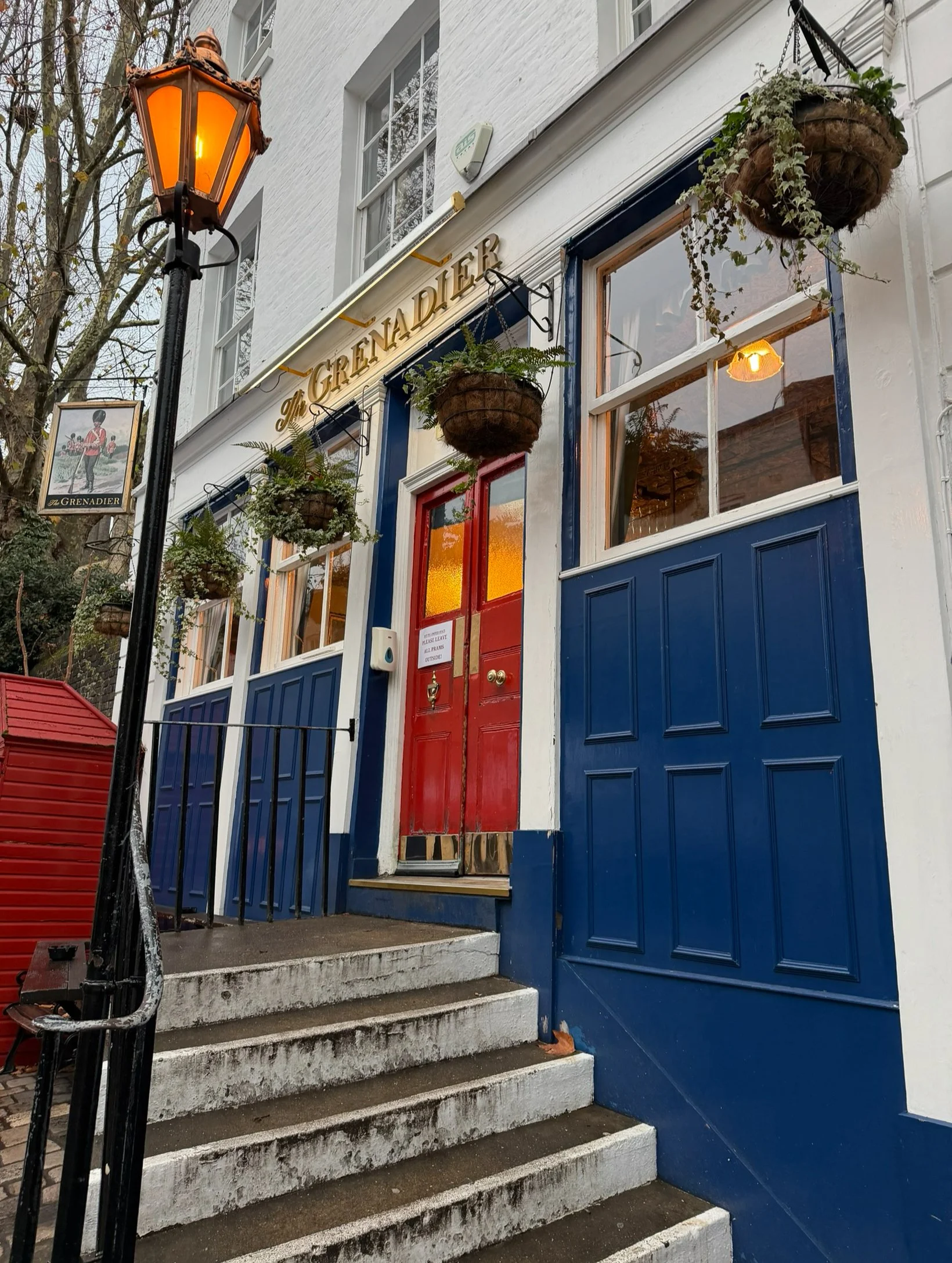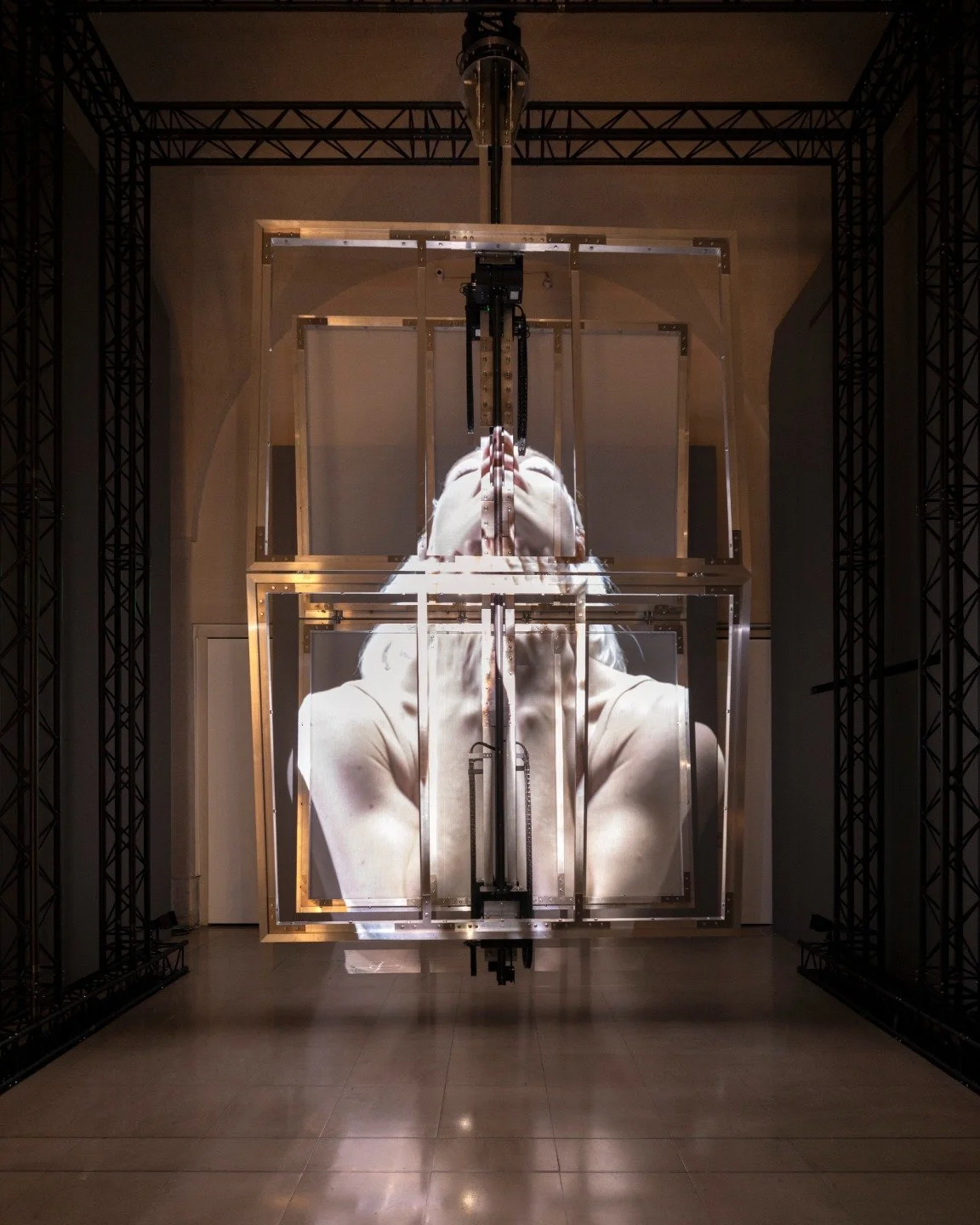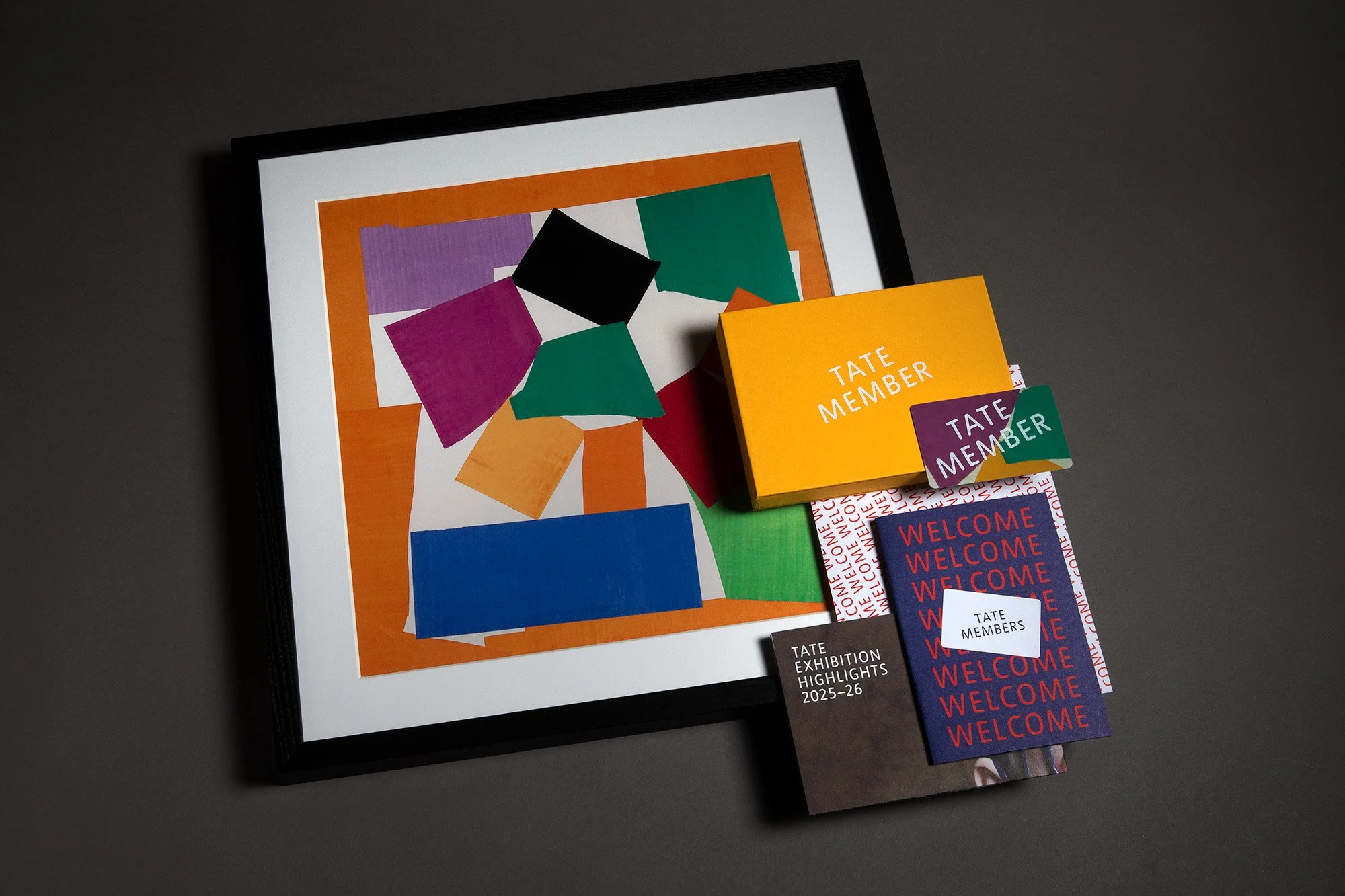In conversation with Neil Gore and Rukmini Sircar
“This timely and urgent retelling of one of the most significant mobilisations in labour movement history brings the inspirational fight for freedom, equality and human dignity to the stage.”
- Neil Gore
Neil Gore and Rukmini Sircar. We Are the Lions, Mr Manager!, Photo courtesy Townsend Theatre Productions.
Townsend Productions is marking the 50th anniversary of the Grunwick Strike (1976–1978) with the return of We Are the Lions, Mr Manager!, a powerful play written and musically directed by Neil Gore (Farewell Leicester Square, Yes Yes UCS; UK Tours) and directed by Louise Townsend. The production features Rukmini Sircar (Bombay Superstars, West End; Mr Bob’s Midnight Market, Gazebo Theatre) as Jayaben Desai, bringing to life one of the most significant moments in British labour history.
Ahead of the London run, we spoke to Neil Gore and Rukmini Sircar about the experience of creating and performing the play. They shared insights into portraying Jayaben’s courage and determination, the research and creative process behind the production, and why its themes of solidarity, equality, and collective action remain so vital today.
What has it meant to you to bring new life to Jayaben Desai and this story through We Are the Lions, Mr Manager?
Neil: There's a connection with the people because they're real. It means you have to be respectful. Well, it depends on who you're playing, actually. I've been quite disrespectful to one or two real life characters in this story because I don't respect their position. That means I've got a bit of freedom there to play with the past and present it in such a way as that is sympathetic to what I feel about the whole thing.
For the main character, Jayaben, it's important that we get the spirit of her right. It's important that in the writing I'm respectful and give that due respect, because she's an extraordinary person. It was important that we found somebody to play her who can explore the depth of the character and express it to an audience. Everything else that happens around her is kind of a fringe concern. Through Rukmini, we’ve found somebody who has plumbed the depths there and has a connection. From my point of view, that's what it means. That’s what’s important.
Rukmini: It's been incredibly educational and inspiring playing Jayaben. Sometimes we are all critical about the world we are living in and the political climate we are in. And telling her story is a source of hope. Even though her own journey ended in, well, quote, unquote, “failure”, it's a source of hope.
Prejudice can be insidious and hidden in narratives. When you tell these stories, they form a counterpoint to those beliefs that instil fear and hatred among people. This a story of coming together and sharing and standing by each other and believing in something. For me personally, it has been educational, inspirational, and a source of hope. That’s what it meant to me.
Neil, what did you discover when bringing Jayaben Desai and her story to the page and onto the stage?
Neil: The actual dispute, I suppose, is fairly typical in the seventies. It was fairly typical, at the time, that a strike was called, because the unions were a powerful force on the political scene.
This was the first time trade unions supported a group of workers that they were traditionally reluctant to support. It was the first time that they had supported immigrant workers and women. That's the most important things about the dispute, that the trade unions got behind it. In that phrase, “an injury to one is an injury to us all” – this was the first time it was put into this context.
It became football, really, between left and right. It blossomed into a major event. So, from a small factory in North London, suddenly it had national importance. In terms of where it stands in time, it's like the fulcrum, it's the tipping point where you see trade unions fight back against the establishment.
Basically, this is where the fight back begins.
Also, what's most remarkable is that she was not particularly a political person. She is originally from Gujarat in India and experienced the resistance against British rule. That, in a sense, politicised her. But when she ends up working at this factory and sees the downright racism, the downright inequalities, it was too much for her to bear.
She’s not a trade unionist but she saw unionism as a way of making demands, making change. It was a steep learning curve for her. But she never stops questioning. She’s met with all sorts of barriers. She comes up against all these obstacles, and she’s constantly trying to break through them.
And then there’s another barrier: the people who are supposed to be on her side. The compromises. The trade unions try to compromise - and what’s the point of compromising? So, she starts questioning that too. She’s extraordinarily determined. That tenacity is remarkable, and it’s the most important discovery of mine through telling this story.
What does solidarity mean in the context of this story?
Rukmini: Within the context of the story, solidarity translated to the scale of the event. The numbers. It was unprecedented solidarity of people who are apparently different in terms of language and culture but finding the common ground. Standing next to people, even though the problem isn't directly yours. To overcome that thinking and to stand next to someone who you see suffering because you can find the common ground.
That is the mentality that it takes to show solidarity. It can often be reduced to just a word, you know, in “solidarity” – what does that mean? It really means to find what is common.
Solidarity also translated to a sense of community. It defined them over those two years. As Jayaben says in the end, that standing by each other, standing next to each other, that gave them a new sense of who they are as a group. They're not just separated by their professions and languages and cultures, but they are fighting this fight together for a new definition of working class in the UK. So that is what I think solidarity translates to in the context of the story.
Neil: Solidarity means nothing unless everybody's behind it. That was the issue with the strike. They could have won if the electrical unions, the engineering unions, the water unions, had pulled the plug on the factory.
The post office workers, they showed solidarity. They stopped delivering the mail, which is against the law. They were putting their jobs on the line. They could have been sacked. That's real solidarity. The miners that came down in force from Yorkshire, from South Wale, from Scotland, and they were right behind the workforce at Grunwick. They were mainly women, and mainly an Asian workforce. They showed true solidarity.
But there were chinks in the armour. And that's the trouble. That’s the message of the play with the final speech. I'm going to give it away… it's, about staying united. Only through solidarity, total solidarity, only then will you be taken seriously. Only then will you make change. That’s the biggest lesson that I think Jayaben learned. Then, and only then, she says, will we be free, free to greet the sun and to share the earth.
Rukmini Sircar. We Are the Lions, Mr Manager!, Photo courtesy Townsend Theatre Productions.
Neil, why did this movement and moment as a particular point in British history inspire you to retell this story today?
Neil: The whole event was a huge intersection of all sorts of things. Racism. Sexism. Classism. It's all in this story. In every way, in every aspect of this particular dispute you have all of that, which led to us bringing together a small exhibition on our tours with the show.
The point of exhibition was to highlight the story and connect it with now. What inspired us to do the show was what happened last summer, after the awful events of Southport and how the far right used it as a means to come together to attack immigrants.
There's lots of relevance to the present on all these levels. Women in the workplace, immigration policy, the state of trade unionism. People are fighting the same struggles they fought fifty years ago, a hundred years ago.
It's a reminder that the fight still goes on. Every generation must fight the same fight.
What was the process of researching for this play and the tour?
Neil: I did the research as part of the Grunwick 40th anniversary, ten years ago. It was helped along because the anniversary was a big event. They opened up a big exhibition around Willesden. As part of that, I created this play.
There was of plenty of research materials. Some very good books. Several academic papers. At the same time there was the beginnings of a project called Striking Women by some academics.
I was lucky to meet some of the strikers themselves. So, you get firsthand experience through the people that were involved day to day on the picket lines.
There’s lots of film in the archive. There's also associated art with it. There were songs written about it. had all these connections with others involved. The play itself is helped along as well by the copious amounts of video material which exists, and songs which give the narrative a boot up the bottom. It is just like a jigsaw, a very large jigsaw.
Rukmini: My introduction to her was through books. I didn't know anything about her at all. I didn't know anything about the strike or anything about Jayaben whatsoever. I came into it completely fresh.
Through the book I was learning about history of unions in the UK, and at the same time watching this film that Neil had been presented with when previously touring the show. It’s in German, but the visuals convey a lot. They transported me to something I knew of in the freedom movement in India.
Because I grew up studying that part of history, Indian history, Jayaben’s story was like finding the other side of that story. Kind of like finding a missing sock. Because you grow up learning about these national heroes standing up to British imperialism and colonialism and using these strategies to counter colonialism in India, and then you're reading about Jayaben’s story and the British working class, standing up to a capitalist, imperialist racist system using the very same techniques as the Indian freedom fighters. That helped me enter her world and understand what she was trying to channel.
Rukmini, I imagine there might have been complicated emotions when playing this character. What has that been like?
Rukmini: In the show there are clips of how people were talking at that time, the language they were using about the Indian community and the South Asian immigrants. The way they were being spoken about is hurtful. It is painful to listen to. It's disturbing. It's hard not to take it personally, sometimes. You need to understand that this is true, and this is still happening. It's this language, this vocabulary, very much alive and thriving and present in today's world.
While it was painful, her stance is incredible. She just stands up to all of that. I don't know whether I have the kind of bravery or the courage that she has. So, embodying Jayaben, however briefly, and to whatever small extent I do within the realm of the play, I understand that standing up for yourself is hard, but it's important. So, I draw from her. I'm trying to learn from her.
In the Guardian’s obituary of her, they write that she “defied stereotypes all of her life” – in what way do you think she was able to do this?
Rukmini: When you Google her, the first images you see are of this tiny woman in a saree, swamped with wool and wearing a hat, holding a megaphone, walking towards this wall of white, burly policemen surrounded by a crowd. That is absurd. That's an absurd image. It makes no sense. It's so unexpected. You don't associate that with someone like her. The very first impact on me was that I was flabbergasted that this is real. It's almost like an AI image.
She's a person who apparently speaks in broken English and who's wearing all of this but the interesting thing about her is that she leans into it. She leans into who she is. She's self-aware, and she's drawing from her past, her roots, her traditions.
Being someone who's come to the UK recently, I have found there is a tendency to want to assimilate, to want to belong, to want to blend in. To keep your head down. The cool thing to do is to blend in. But in Jayaben’s case, she doesn't blend in. She’s very much rooted in her identity. And in doing that, she's breaking the stereotype, because the stereotype is misinformed. It’s rooted in misinformation. She is not apologetic about who she is, and in that she breaks stereotype.
There was this other dispute called the Gate Gourmet Dispute in which there is a group of South Asian women who are drawing from the Grunwick Strike. It’s amazing, because Jayaben gives a new template of what being an Asian woman in the UK could mean. It's not just someone who's cooking in the kitchen or making curries, but it’s someone who's leading a protest. I do feel like I stand on the shoulders of women like her. The comfort that I have here, right now, I do believe can be directly traced back to the space that she created for herself. Yeah, she made space for me.
Neil Gore and Rukmini Sircar. We Are the Lions, Mr Manager!, Photo courtesy Townsend Theatre Productions.
After watching the play, what would you hope the audience takes with them?
Neil: We want them to question. Ask questions. That's what it is. They gotta question their own situations. There's lots of incidents in this story where the strikers are misrepresented and there's another layer of barriers. That’s what struck me. Jayaben's fighting this fight, she thinks she's winning, but there’s a resistance to her. She’s completely unaware of it. It's cruel. So, people must think beyond what they're given. Question what they are presented with.Objectives are often hidden in presentation, you know? So, question things.
Rukmini: The last thing that she says is “stay united.” That is last message that she's giving people, despite the failure of the strike, despite the heartbreak of it all. If we stand together, if we find common ground, we can achieve this ideal that she's describing, this almost utopian world that she's describing. The way to that is solidarity. Sometimes solidarity can be reduced to just a word, just a hashtag on Instagram. Actually showing solidarity is hard work. If this can inspire that or at least spark the questions that lead individuals to go and stand beside each other, that would be great.
We Are the Lions, Mr Manager!, the story of Jayaben Desai and the Grunwick Strike, written by Neil Gore and directed by Louise Townsend, will be on show in London from 26–29 November 2025.
Date: 26 - 28 November 2025. Location: Sands Film Studios, Rotherhithe, 82 Saint Marychurch Street, London, SE16 4HZ. Doors open at 6.45pm for the exhibition ahead of the show. Price: Pay what you can £12 - £50. Book now
Date: 29 November 2025. Location: Willesden Green Library (Performance Space), 95 High Road, London NW10 2SF, Price: price incl. booking fee. £13.01 - £16.26. Book now
Interview by Angelo Mikhaeil








